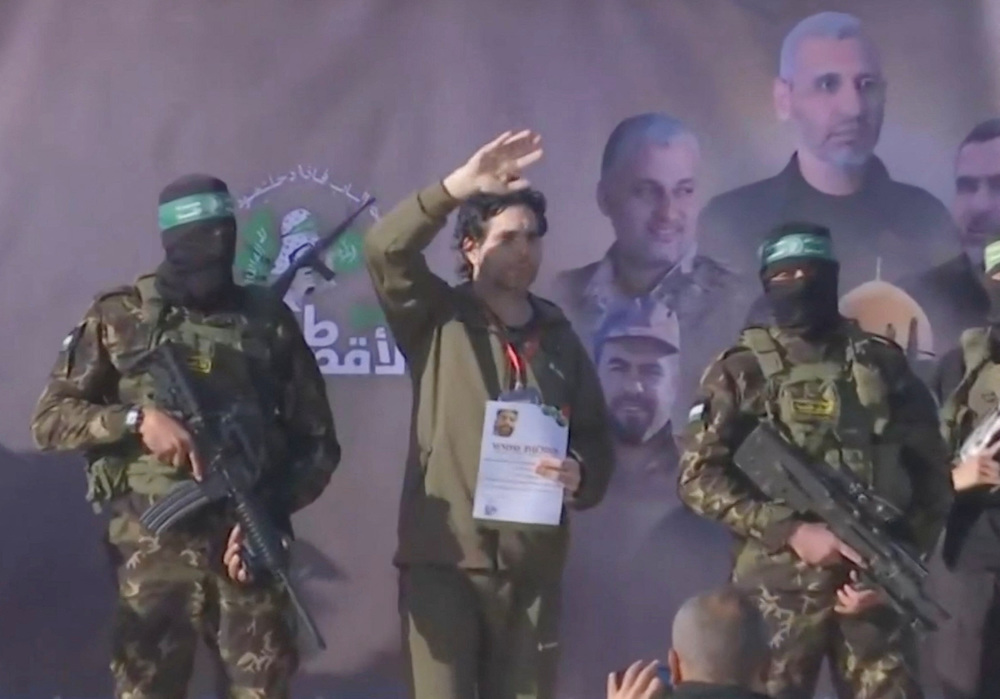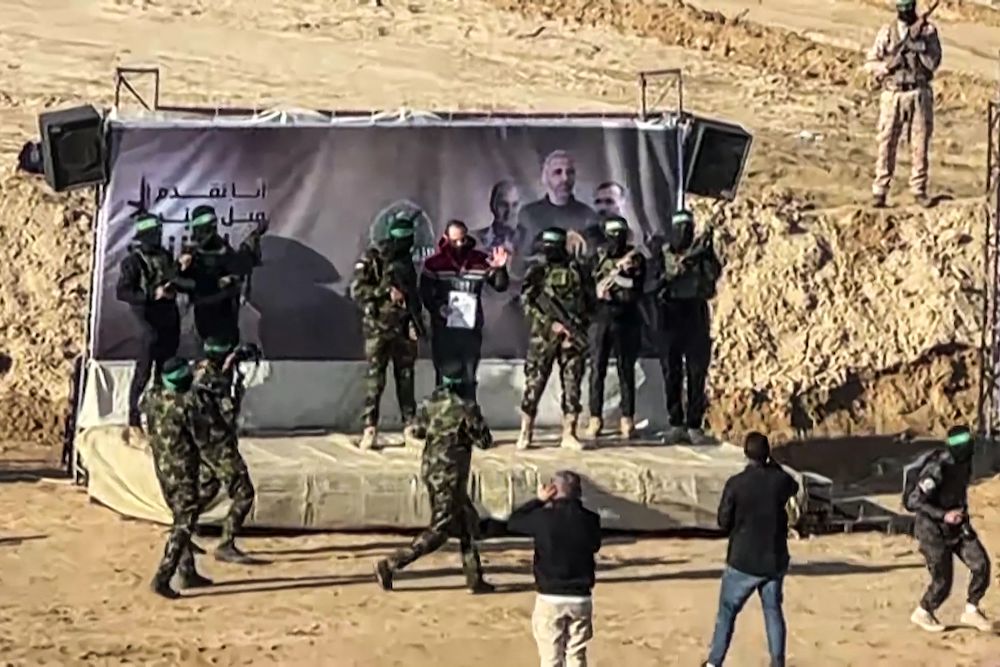BEIRUT: Hezbollah launched a series of attacks on Israeli military positions on Saturday following what local media reported as an escalation in Israeli strikes on Friday night.
Israeli warplanes and drones launched a series of raids on villages and towns in southern Lebanon, to which Hezbollah responded by firing dozens of rockets.
A building in Adloun, Sidon District, was destroyed during one raid, resulting in the death of a woman named Amal Abboud and injuries to four others. In Ain Qana, another strike led to the death of Hezbollah member Ahmed Taboush.
Hezbollah said it had shot down an Israeli drone over southern Lebanon hours later.
Israel confirmed a military drone was hit by a surface-to-air missile, causing it to crash in a village in southern Lebanon.
This is the fourth time that Hezbollah has downed an Israeli drone in southern Lebanon, but the Israeli Air Force said it would continue its operations in Lebanese airspace despite the losses.
The clashes between Hezbollah and the Israeli army appear to have shifted from the ground to the skies. Residents in border areas reported experiencing “one of the fiercest nights of attacks since clashes began on October 8 last year” on Friday, with Israel conducting airstrikes on multiple towns and villages.
The escalation coincided with a speech from Hezbollah Secretary-General Hassan Nasrallah, in which he stated that southern Lebanon is “a pressing, influential, and powerful front in pressurizing the Israelis, as confirmed by its officials.”
Israeli media said that Prime Minister Benjamin Netanyahu had instructed Israeli forces to expand the level of strikes in Lebanon.
Hezbollah confirmed in a statement on Saturday that they had shot down an Israeli drone.
“After monitoring and closely following the Israeli drones that carry out assassinations and attack safe homes, we targeted a Hermes 900 drone with appropriate weapons over Lebanese territory and shot it down,” Hezbollah said. The drone reportedly fell in the Deir Kifa area.
Israeli drones continued to target vehicles around the border area. A drone bombed a car in the town of Markaba, and another targeted a motorcycle in the town of Majdal Selem in the Marjayoun district. Lebanese emergency services transported two casualties from the site of the strike.
One drone struck close to the mosque in the town of Barin in the western sector, while another fired three missiles at a car in Harouf town, causing casualties.
Hezbollah said that it had launched a successful missile strike on Israel’s Al-Baghdadi military site.
Additionally, Hezbollah said it had carried out “an aerial attack using assault drones on the recently established position of the armored group north of the Yiftah Barracks, aiming at the enemy’s officers and soldiers’ locations, resulting in confirmed casualties among them.”
Sirens sounded in the Yiftah and Hermon regions in Upper Galilee, and Israel’s Channel 12 said that “a rocket landed in the vicinity of the area in Upper Galilee, but no casualties were reported.”
The Israeli army confirmed that “a major fire broke out inside the headquarters of the 769th Eastern Brigade (Camp Jibur) in the Kiryat Shmona border settlement after a heavy missile fired by Hezbollah from Lebanon fell.”
Hezbollah confirmed that it had targeted “the headquarters of the 769th Brigade in the Kiryat Shmona barracks with heavy Burkan missiles.”
The missiles struck the headquarters directly, resulting in a fire and some damage, Hezbollah said. The Kiryat Shmona municipality acknowledged that Hezbollah’s bombing of the settlement “caused severe damage to infrastructure, property, and vehicles.”
The municipality called on residents of Kiryat Shmona to remain near protected areas.
Israeli Army Radio reported that “two buildings, one of them military, were hit by missile strikes from Lebanon on Kiryat Shmona.”




























